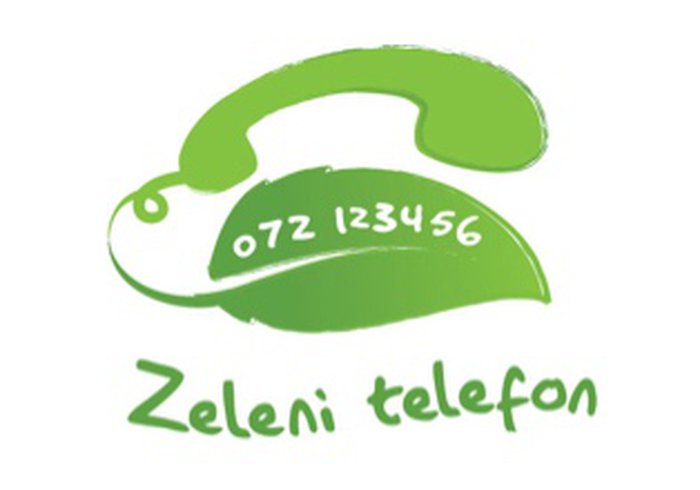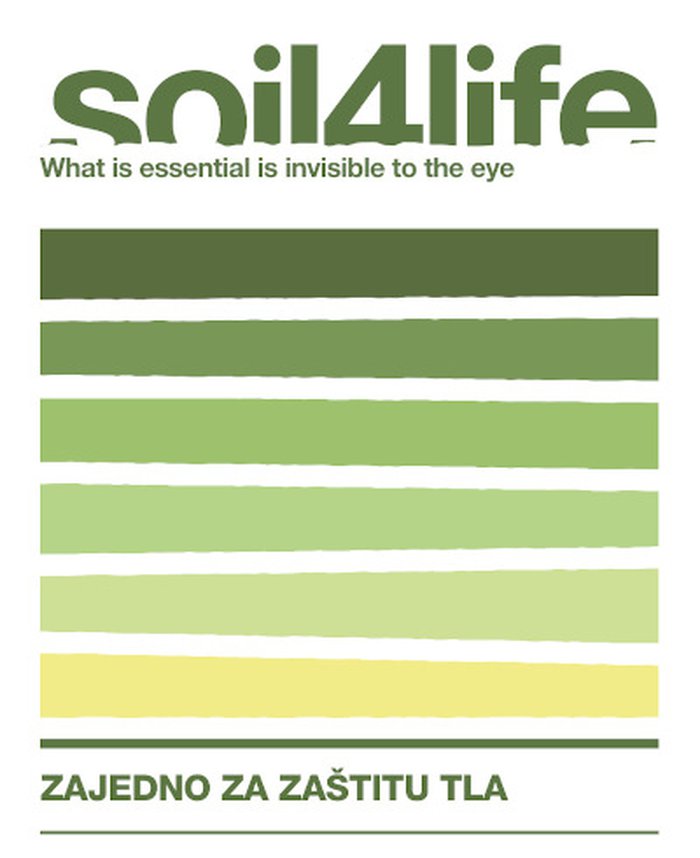Green Istria, IPoP and Legambiente Lombardia published a compilation of eihght non-formal learning tools in their new handbook for teachers and youth workers entitled “Tools for learning – tools for sustainable development”
June 30, 2022
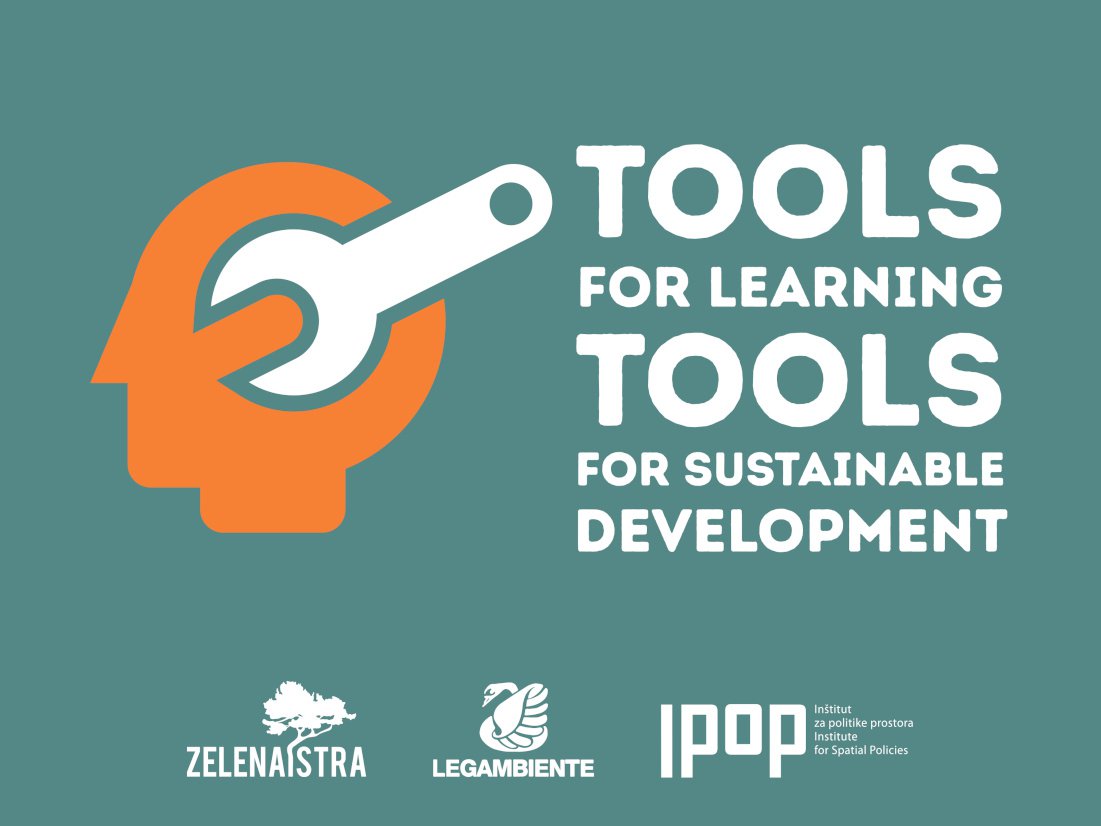
Three environmental groups, Croatian Green Istria, Italian Legambiente Lombardia and Slovenian Institute for Spatial Policies – IPoP published in June 2022 their first joint handbook entitled “Tools for Learning – Tools for Sustainable Development”.
“Tools for Learning – Tools for Sustainable Development” is a handbook for teachers' modern, competence-based teaching on sustainable development. The handbook is also intended for youth workers from civil society organizations who already are or will, inspired by the handbook, become engaged in education of youth about sustainable development topics.
The handbook includes a detailed description of eight innovative tools, i.e. methods for non-formal learning that have been used successfully by three civil society organizations in their youth work for many years.
The tools are focused on three thematic areas - spatial planning, waste reduction and climate change. Therefore, the handbook presents all details of the organization and realization of a swap party, a simulation of the UN Climate Change Conference or an urban walk, just to mention some of the tools.
The handbook suggests how to involve young people, provides instructions for step-by-step implementation of methods, presents learning outcomes as well as methods for assessing students’ attainment of learning outcomes. It is available in printed and digital format in Croatian, Italian, Slovenian and English.
The handbook was printed in 250 copies in each of the project team national languages – Croatian, Slovenian and Italian, as well as in English, while each of the language versions can be downloaded in digital format from the project and partners’ websites.
IPoP, Legambiente Lombardia and Green Istria have developed the “Tools for Learning - Tools for Sustainable Development” handbook as part of the namesake project co-funded by the Erasmus+ Programme of the European Union and the Croatian Government Office for Cooperation with NGOs.
The project, primarily aimed at empowering these partner organizations and their staff for innovative work with young people on topics related to sustainable development, environmental protection and climate change, started on 1 November 2020 and will last until 30 June 2022. The empowerment was achieved through the exchange of good practices, green skills and non-formal learning tools among the three organizations during three “training for the trainers”. Trainings enabled each organization to innovate its existing “green expertise” by acquiring its partners’ methods, i.e. by creating innovative programs for better, modern and attractive work with young people in accordance with youth expectations.
Nine youth workers in the project team have thus become “catalysts” for a positive change on the level of the other two project target groups - young people and teachers.
During three workshops involving 30 young volunteers, the partners tested innovative informal learning tools in their own local communities. In doing so, they also prepared and empowered young people to act as agents of change for sustainable development, raised their awareness of environmental and climate challenges and improved, above all, their citizenship competence and green skills. Young people became more aware of how their behavior affected the environment, but also how their new skills enabled them to volunteer and work in the green sectors. This has facilitated positive changes in youth behavior, their personal preferences, consumer habits and lifestyles.
In order to strengthen cross-sectoral cooperation and contribute to school education system, the handbook, which is one of key results of the “Tools for Learning - Tools for Sustainable Development” project, will be sent to all schools in Croatia, Slovenia and Lombardy as well as to institutions relevant to school education. The partners also organized the handbook presentation for teachers in Pula, Ljubljana and Milan.
The project “Tools for Learning - Tools for Sustainable Development”seeks to support a never-ending quest of youth workers and teachers for innovation in order to provide better quality work and inspire the change towards sustainable development within their young learners.
41 young learners empowered to act as agents of change for sustainable development within the “Tools for learning – tools for sustainable development” project
June 21, 2022
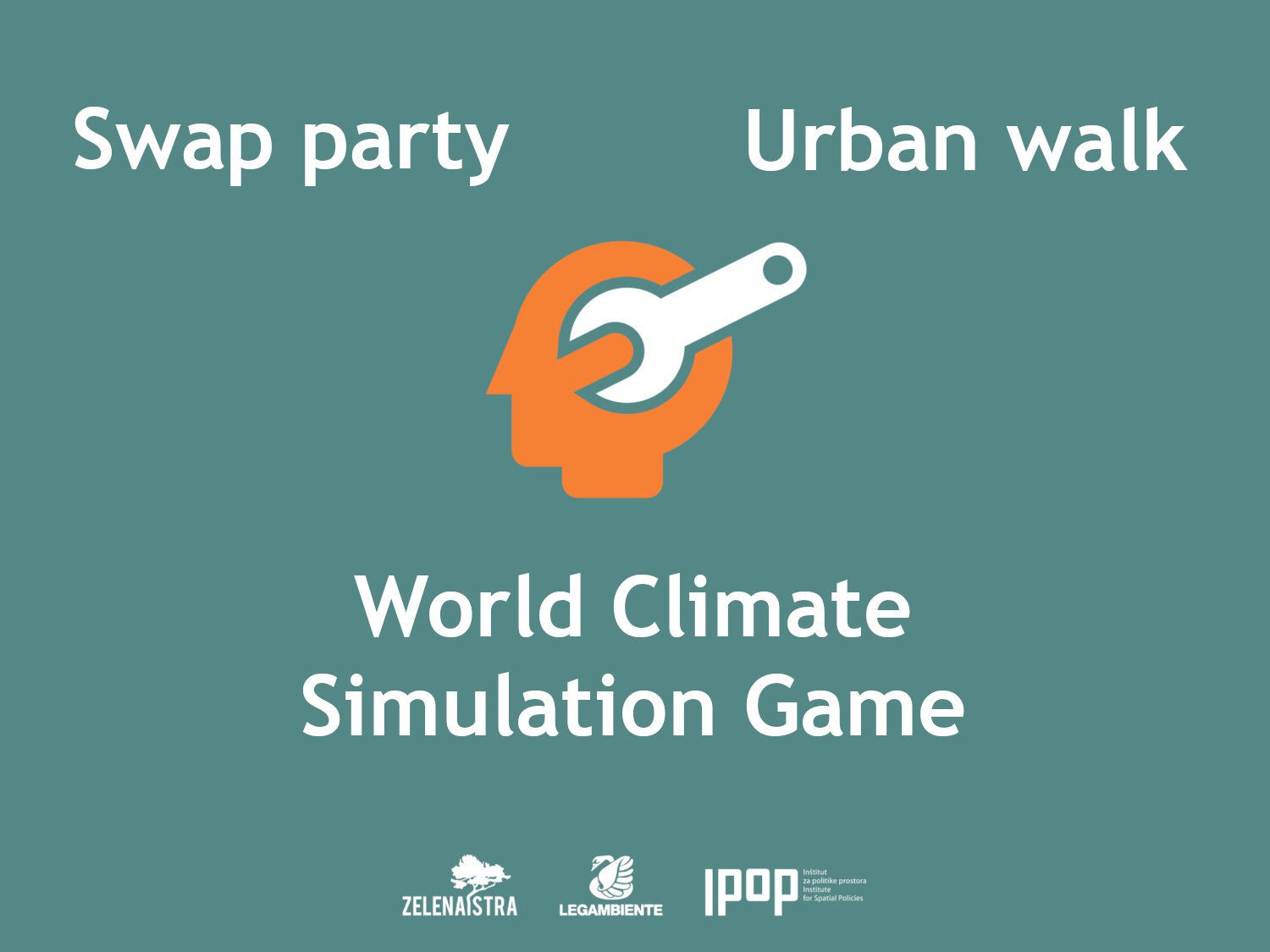
Within the “Tools for learning – tools for sustainable environment” project partners - Green Istria, Legambiente Lombardia and IPoP - Institute for Spatial Policies organized three one-day youth workshops aimed at testing their new non-formal learning tools/methods for education of youth about sustainable development locally.
The innovative workshop programmes were created on the basis of the exchange of the good practice, green skills and innovative non-formal learning tools which occurred during the three trainings for trainers which took place among the partner organizations in 2021.
In the workshops in total 41 young volunteers from Pula, Lombardy and Maribor participated.
In order to test the new methods, Legambiente Lombardia provided education focused on waste reduction and then involved seven Legambiente’s young volunteers in organization of a swap party in Galbiate, Lecco, around 40 kilometers from Milan. Swap party is a community exchange event that promotes the reuse of products and waste reduction. The tool is derived from Green Istria’s youth work and specific green expertise aimed at change of youth consumption habits. During the workshop, the young volunteers’ skill of organizing a public event for the promotion of the reuse principle was developed, they were prepared to analyse and respond to arguments about overconsumption, as well as to apply waste reuse behavior in everyday life.
Green Istria implemented for the first time IPoP’s tool – urban walk with 23 students of Technical school Pula. The aim of the walk, apart from promoting active mobility by walking, was researching urban planning (bad and good) practices in local space of Monvidal, Valvidal and Gregovica, analyzing how this space reflects the community needs, raising the interest of young people about the environment and climate change, as well as stimulation their thinking processes related to the use of space and potential improvements of the current state of space.
In cooperation with Pekarna Magdalenske mreže, IPoP organized a role-playing game, a simulation of UN’s climate change conference of the parties (COP) for 11 young people from Maribor, who had the opportunity to experiment and explore methods and strategies of action taken by nations in the fight against climate change. Apart from raising the interest of young people about problems caused by the climate crisis in different parts of the world, increasing their ability to describe the complex COP negotiation mechanisms and to respond to arguments about climate change by developing their own communication and negotiation skills, the long-term goal of IPoP’s workshop was to prepare the young learners for future involvement in climate change action. The world climate simulation game is often used in Legambiente’s youth work, while it is created by Climate Interactive, MIT Sloan School of Management, and based on use of C-ROADS, an interactive model that allows the analysis of the role play results in real time by simulating the short-term and long-term effects of UN countries’ decisions to reduce greenhouse gas emissions.
During the workshops the three Youthpass processes were implemented. Young participants were informed about the eight European key competences for lifelong learning, and invited to reflect on their learning processes by using their personal learning journals. Finally, all organizations issued Youthpass certificates for young people involved in the workshops, as well as volunteer log books, as the young people provided to project partners valuable inputs about whether their new tools are in line with young people’s expectations and needs. Among the main achievements of the workshops is satisfaction of young learners with the new workshops programmes provided for them, their readiness to act as agents of change for sustainable development and change their personal preferences, behaviours and lifestyles towards the sustainable development. Thus, it can be concluded that the new tools have great potential for youth work in Croatia, Slovenia, Italy and Europe.
Erasmus+ brings together environmental groups from three Adriatic countries
July 15, 2021
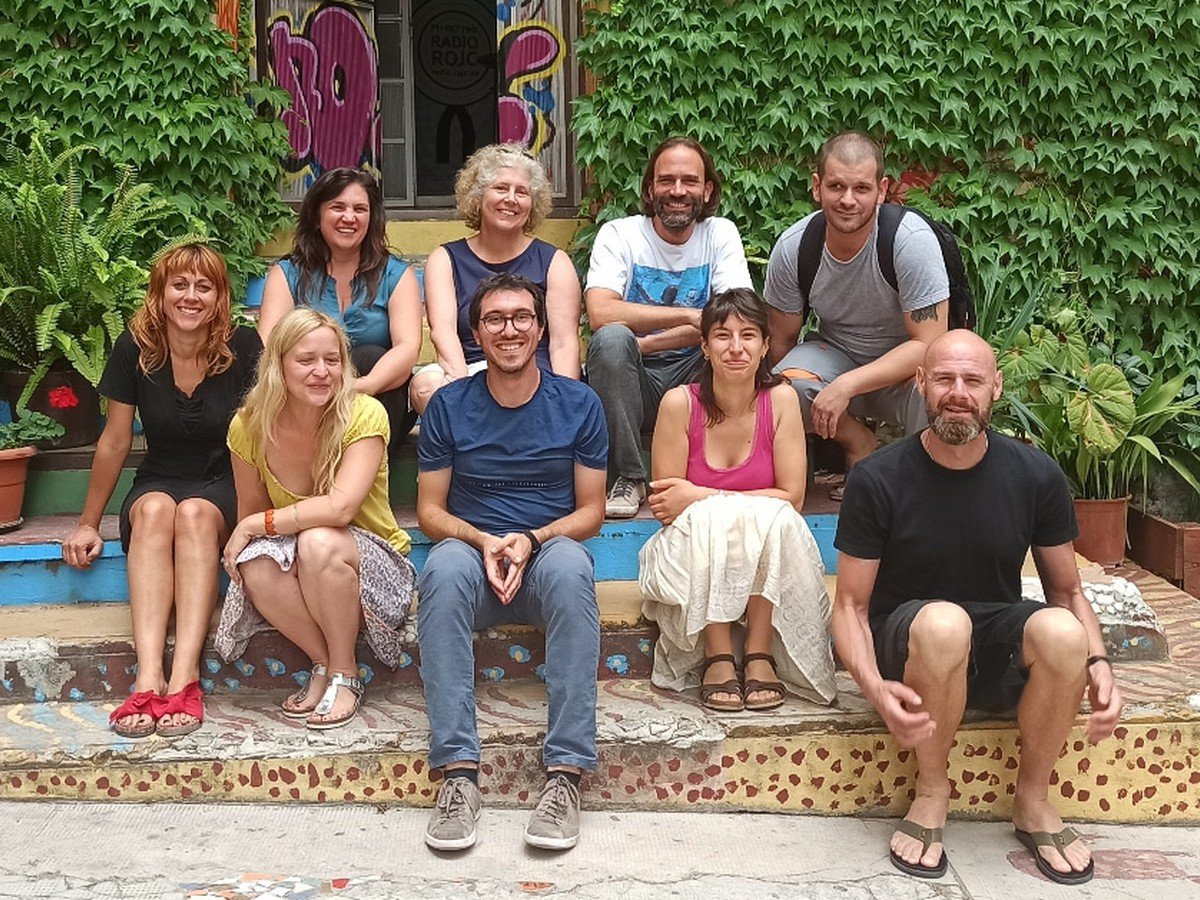
Three environmental groups, Croatian Green Istria, Italian Legambiente Lombardia and Slovenian Institute for Spatial Policies - IPoP met on 13-14 July to discuss the implementation of their Erasmus+ project "Tools for learning - tools for sustainable development". The project aims to empower the organizations to provide better quality non-formal education for young people about some of the most pressing challenges that humanity is facing, such as climate change and the environmental ones.
- Our experience shows that common, transnational problems require transnational solutions and that Adriatic countries and civil society organizations have a lot to learn from each other - said Dunja Mickov from Green Istria. She explained that their motivation for this project was to innovate Green Istria's expertise and youth work methods, but also to popularize these methods among teachers and other CSOs.
- This is necessary if we want to inspire the change towards sustainable development within our young learners and empower them to act as agents of change - added Arianna Bazzocchi from Legambiente Lombardia.
- In order to enable innovation, each of us organized one training for the trainers in the past months. This is how we exchanged our good practices and methods for youth work with our partners - said Maja Simoneti from IPoP.
IPoP focused in their training on issues related to sustainable urban development, including involvement of young people in spatial planning and non-formal learning tools such as urban walk, mapping, questionnaires, interviews and photo safari.
Legambiente Lombardia presented tools focused on climate change - simulation of the UN Climate Change Conference (COP) and Kahoot website based climate change issues quiz.
Green Istria shared its good practice in application of non-formal learning tools for youth work focused on waste reduction and need to change of consumption habits - the construction and use of give-box, organizing cooking with leftover food and swap party events.
On the basis of the trainings, the environmental groups will in the nearby future organize three workshops for 30 young volunteers who will help them test the new methods and how their work in their own local settings.
The reports from three organizations trainings in their national languages can be found on the following links:
Legambiente Lombardia
IPoP
Green Istria
The project "Tools for learning - tools for sustainable development" is co-funded by the Erasmus+ Programme of the European Union.
Green Istria leading a new Erasmus+ project "Tools for learning - tools for sustainable development"
November 30, 2020
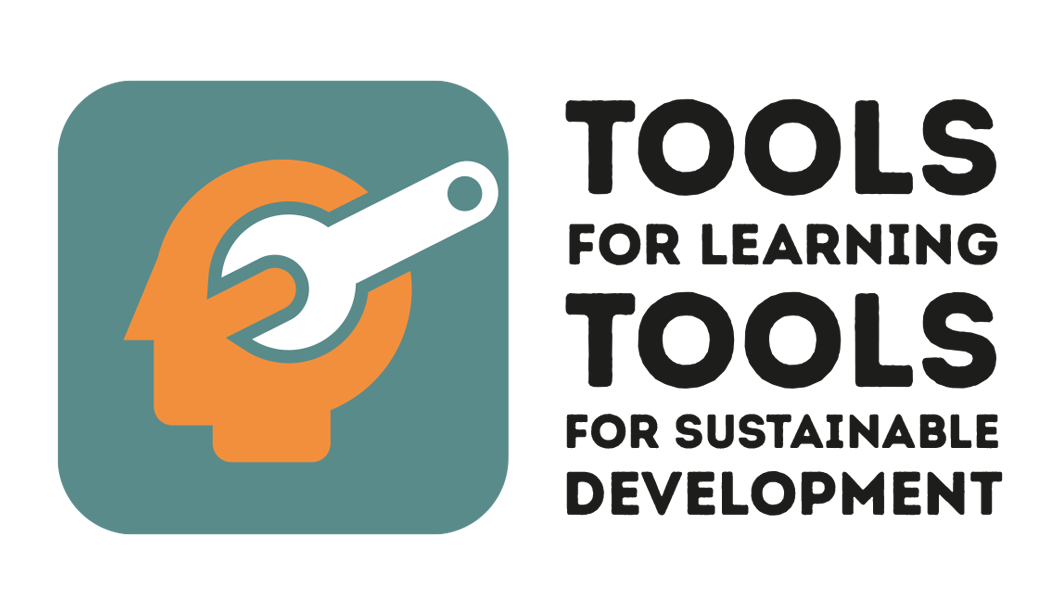
"Tools for learning - tools for sustainable development" is the name of the new project led by Green Istria in cooperation with the Italian organizations Legambiente Lombardia Onlus and the Slovenian Institute for Spatial Policies (IPoP). The project started on November 1, 2020, and lasts for 18 months.
Project is primarily aimed to empower partner organizations and their youth workers for innovative youth work related to topics such as sustainable development, environmental and climate change challenges. This will be achieved through the exchange of good practices, green skills and methods - i.e. non-formal learning tools, such as cooking with leftover food demonstration, simulation of the UN Climate Change Conference or the urban walk - between the three organizations during the three "trainings for trainers". The trainings will enable each organization to innovate its existing "green expertise" by taking over the partner's methods and creating innovative programs for better, modern and attractive youth work, corresponding to the expectations of youth.
Once empowered, the nine youth workers within the project team become catalysts of positive changes and positively affect the two other project target groups - the young people and the teachers.
Through three workshops which will involve 30 young volunteers, the project partners will test their innovative practices and newly acquired non-formal learning tools in their own local settings. Simultaneously, the partners will prepare and empower young people to act as agents of change for sustainable development, raise their awareness about the environmental and climate challenges, and improve, above all, their citizenship competence, as well as their green skills. Young learners will benefit from better understanding about the effects of their actions on the environment and how their new skills can broaden their opportunities to volunteer and work in the green sectors. Thus behavioural changes of their individual preferences, consumption habits and lifestyles will be enabled.
One of the most significant products of the project "Tools for learning - tools for sustainable development" will be a handbook for teachers' modern, competence-oriented teaching on sustainable development, with included innovative non-formal learning tools derived from partners’ youth work good practices, as well as assessment methods of students’ learning outcomes. The handbook will be published in Croatian, Italian, Slovenian and English and printed in 200 copies in each of the partner's national languages.
The handbook will be sent to all schools in Croatia, Slovenia and Lombardy and institutions relevant for school education, while this will open up partners' work to cross-sectoral cooperation and allow greater synergies with the school education system. Partners will also organize presentations of the handbook for 40 teachers in Pula, Ljubljana and Milan. The handbook will also serve as a useful tool for youth workers within numerous CSOs in Italy, Slovenia and Croatia that already deal with, or might be inspired by the handbook, to start dealing with topics related to sustainable development.
In order to promote the recognition and validation of youth work and informal and non-formal learning, Youthpass certificates will be issued for youth workers and young learners that will participate in the project. Additionally, 30 volunteer log books and certificates of competences acquired through volunteering will be issued for the young learners.
The project supports a never ending quest of youth workers and teachers for innovation in order to provide better quality work and inspire the change towards sustainable development within their young learners.
The project is co-funded by the Erasmus+ Programme of the European Union and the Croatian Government Office for Cooperation with NGOs.
This communication reflects the views only of the author, and the Commission cannot be held responsible for any use which may be made of the information contained therein. Project is co-financed by the Government Office for Cooperation with NGOs. The views expressed in this communication are the sole responsibility of Green Istria and do not necessarily reflect the opinion of the Government Office for Cooperation with NGOs.


